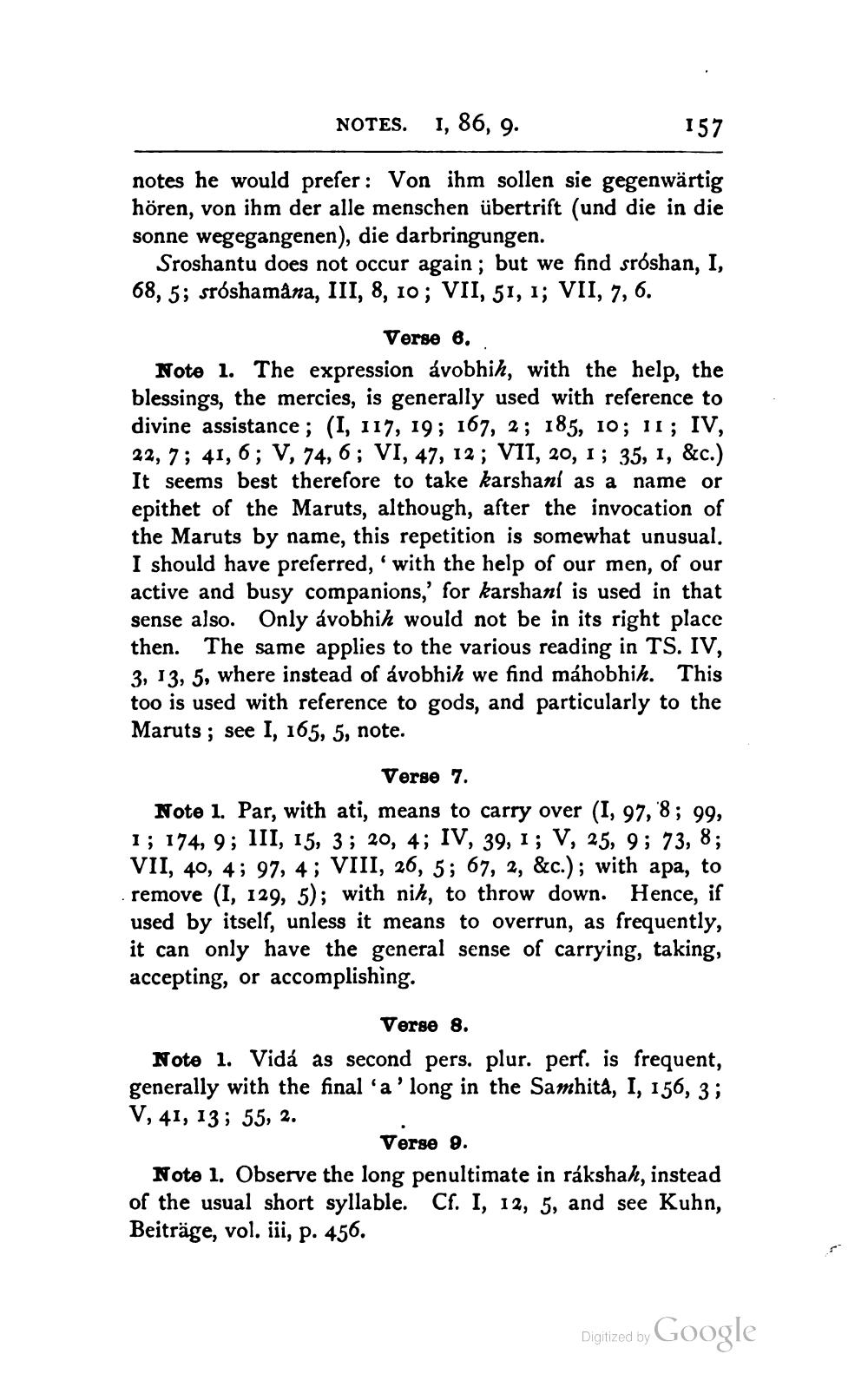________________
NOTES. 1, 86, 9.
157
notes he would prefer : Von ihm sollen sie gegenwärtig hören, von ihm der alle menschen übertrift (und die in die sonne wegegangenen), die darbringungen.
Sroshantu does not occur again ; but we find sroshan, I, 68, 5; sróshamâna, III, 8, 10; VII, 51, 1; VII, 7, 6.
Verse 6. Note 1. The expression ávobhih, with the help, the blessings, the mercies, is generally used with reference to divine assistance; (I, 117, 19; 167, 2; 185, 10; 11; IV, 22,7; 41, 6; V, 74, 6; VI, 47, 12; VII, 20, 1; 35, 1, &c.) It seems best therefore to take karshaní as a name or epithet of the Maruts, although, after the invocation of the Maruts by name, this repetition is somewhat unusual. I should have preferred, with the help of our men, of our active and busy companions,' for karshani is used in that sense also. Only ávobhih would not be in its right place then. The same applies to the various reading in TS. IV, 3, 13, 5, where instead of avobhih we find máhobhih. This too is used with reference to gods, and particularly to the Maruts ; see I, 165, 5, note.
Verse 7. Note 1. Par, with ati, means to carry over (I, 97, 8; 99, 1; 174, 9; III, 15, 3; 20, 4; IV, 39, 1; V, 25, 9; 73, 8; VII, 40, 4; 97, 4; VIII, 26, 5; 67, 2, &c.); with apa, to remove (I, 129, 5); with nih, to throw down. Hence, if used by itself, unless it means to overrun, as frequently, it can only have the general sense of carrying, taking, accepting, or accomplishing.
Verse 8. Note 1. Vidá as second pers. plur. perf. is frequent, generally with the final'a ' long in the Samhita, I, 156, 3; V, 41, 13; 55, 2.
Verse 9. Note 1. Observe the long penultimate in rákshah, instead of the usual short syllable. Cf. I, 12, 5, and see Kuhn, Beiträge, vol. iii, p. 456.
Digitized by
Digitized by Google




